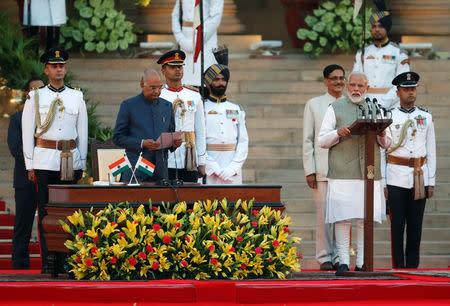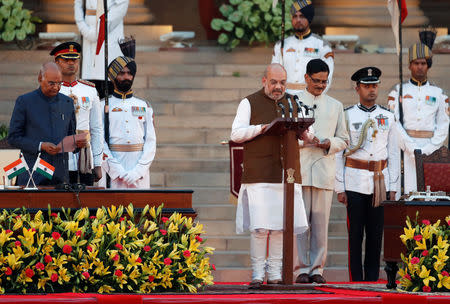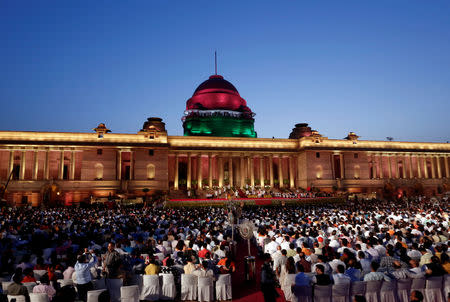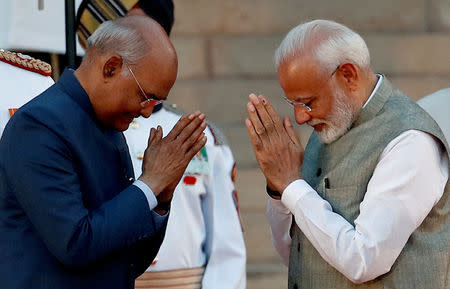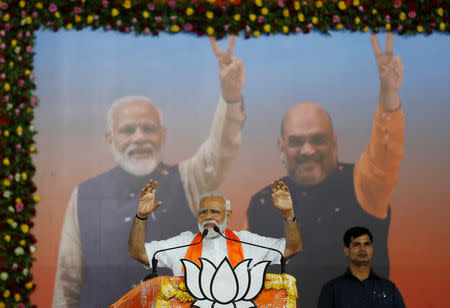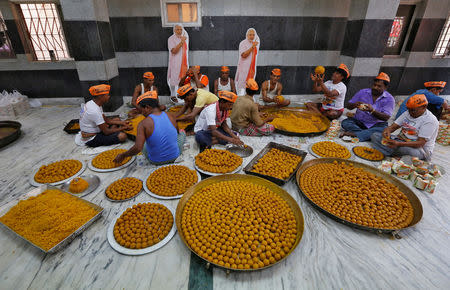Modi set to name BJP head Shah as new Indian finance minister: TV reports
By Krishna N. Das NEW DELHI (Reuters) - Indian Prime Minister Narendra Modi is set to name Amit Shah, the president of his Hindu nationalist Bharatiya Janata Party (BJP), as his new finance minister, according to several Indian TV stations. As Modi's right-hand man and long-time strategist, Shah would be in a powerful position to direct financial policy in Asia's third-largest economy. But there might also be questions about his lack of both central government experience and lack of a financial background. Modi is expected to announce his cabinet within hours, after being sworn in on Thursday evening at an open-air ceremony outside the colonial-era presidential palace with some 8,000 guests including Bollywood stars and leaders of neighbors such as Bangladesh and Sri Lanka. The BJP swept to victory in the recent general election - held over 39 days in April and May - and increased its majority in the lower house of parliament. If the media reports are correct, Shah will be taking over the finance portfolio at a sensitive time. He will probably need to move quickly to stimulate an economy that is showing signs of weakness, with weak farm incomes, slow jobs growth and falling sales of some key consumer goods, including cars and motorbikes. This week, two major industrial bodies called on the new government to take steps to bolster the economy, which grew 6.6% in the three months to December - the slowest rate in five quarters - and is expected to slow further to 6.3 percent in the January-March period. Shah helped run one of India's most divisive election campaigns over the past six weeks to rouse the BJP's nationalist base and make up for the loss of key state elections in December. Part of his strategy included deftly exploiting national security fears. As finance minister, he would replace Arun Jaitley, who wrote to Modi on Wednesday asking not to be considered for a ministerial position because of a series of health problems. India will also have a new foreign minister, with the incumbent Sushma Swaraj, who has had some health issues, sitting among the audience but not on the dais with Modi's new ministerial team. In the federal Indian system of appointments, ministers are sworn in before their specific positions are announced. A potential replacement for Swaraj could be former foreign secretary, S. Jaishankar, who was on the dais and is therefore taking a role in the administration. A former Indian ambassador to both the United States and China, Jaishankar led India’s diplomatic corps during Modi’s first term before retiring in early 2018 and subsequently joining the Tata Group conglomerate. Shah and Jaishankar were not immediately available for comment. Many other ministers who are also senior members of the ruling coalition are expected to retain their cabinet jobs. But Modi, the 68-year-old son of a tea seller, could also promote fresh faces to reward a good performance in the seven-phase election. He focused his election campaign on national security, after tension with old rival Pakistan surged in February over a deadly bomb attack on security forces in the disputed region of Kashmir, which was claimed by Pakistan-based militants. Notably, the leader of Pakistan was not invited to the inauguration. The heads of many of India's other neighbors did attend. "India is proud of all those brave men and women martyred in the line of duty," Modi said after visiting a war memorial near parliament on Thursday. "Our government will leave no stone unturned to safeguard India’s unity and integrity. National security is our priority." The BJP controls 303 of the 545 seats in the lower house of parliament, paving the way for the possibility Modi could attempt controversial land and labor reforms amid concern that Asia's third largest economy is faltering. Modi pushed through reforms such as a goods and services tax and a bankruptcy law in his first five-year term, but faced criticism for failing to create enough jobs for people entering the job market, weak farm prices and tepid growth. India's main opposition Congress party is trying to pick up the pieces after its second straight general election defeat. Its president, Rahul Gandhi, has offered to resign. The party said on Thursday it would not let representatives take part in televised debates for a month while it analyses its defeat. (Additional reporting by Devjyot Ghoshal and Nigam Prusty; Writing by Martin Howell; Editing by Nick Macfie and Hugh Lawson)
